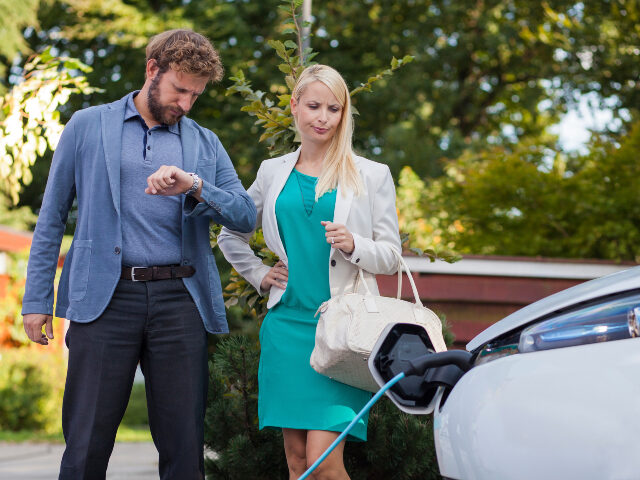Americans are not as interested in purchasing electric vehicles (EVs) as they once were, according to an AAA poll.
Back in 2022, the same survey found that 25 percent of those asked said they “were either likely or very likely to buy a fully electric vehicle as their next car.”
Today, that number sits at just 16 percent.
Over the past four years, those who said they “would be unlikely or very unlikely to purchase an EV rose from 51% in 2022 to 63% in 2025.”
“Taking a longer view, the percentage of U.S. drivers who believe that most cars will be electric within the next 10 years has declined from 40% in 2022 to 23% this year,” writes WWLP.com.
And this is not the first poll to show declining enthusiasm for the EV. A Gallup poll in April of 2024 showed a “decline in the percentage saying they are seriously considering buying [an EV], from 12% to 9%.”
Those considering buying an EV dipped from 43 percent in 2023 to 35 percent.
It should be noted that this AAA poll of 1,128 U.S. adults was taken in early March, so the recent rift between Tesla owner Elon Musk and President Trump is not a factor.
So what is?
Well, when the polls (and sales) showed a boost in enthusiasm for EVs a few years ago, I was skeptical. The boost in EV sales didn’t tell me American drivers had completely revolutionized the way they look at automobiles. Instead, it told me the early adopters were adopting early. But I also assumed there was a finite pool of them. The subsequent drop in EV sales seems to validate that.
My view? The technology is simply not there for Normal People. You have to charge your EV every few hundred miles and 1) charging stations are not readily available, 2) charging takes a lot longer than gassing up, 3) charging stations are not uniform for every brand of EV, and 4) if there’s a line at the charging station, you are in for a long wait.
No one wants to drive around with that kind of stress and worry.
If you have an EV for routine work life, that can make sense. You go to work, you run some errands, you take the kids wherever they need to go, and then you park in your garage and charge the car. That’s a beautiful thing. But you will still want the old gas-powered vehicle for long trips or anything outside that routine.
EVs are also expensive to purchase, expensive to repair, and don’t really help the environment. The electricity required to charge them is almost always generated by burning fossil fuels, and the elements needed to make the EV batteries are an environmental nightmare at both the production and disposal stages.
The Biden administration’s push for EVs created a little stir a few years ago, but reality is still reality.
John Nolte’s first and last novel, Borrowed Time, is winning five-star raves from everyday readers. You can read an excerpt here and an in-depth review here. Also available in hardcover and on Kindle and Audiobook.




